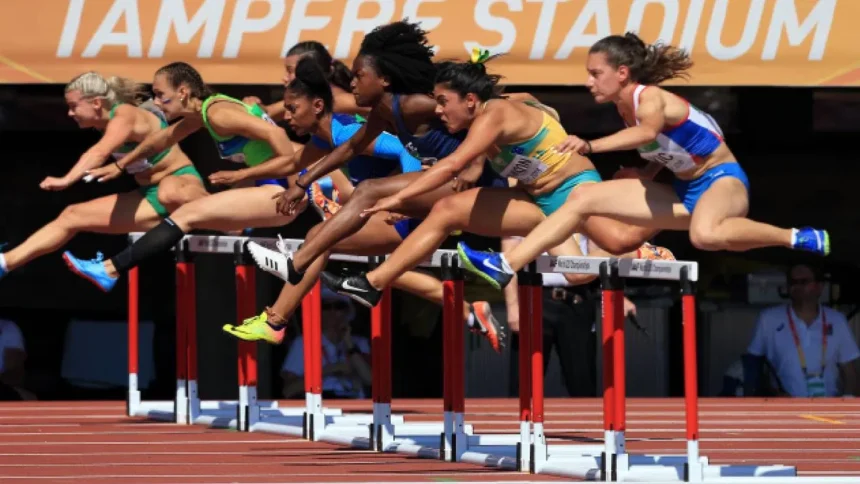In a landmark decision, World Athletics has approved the introduction of a cheek swab test to determine whether an athlete is biologically female. The decision, announced on Tuesday, follows growing debates over fairness in women’s sports and aims to ensure a level playing field.
Sebastian Coe, president of the international track and field federation, hailed the move as a significant step in protecting the female category. Speaking at a press conference in Nanjing, China, after the World Indoor Championships, Coe emphasized the importance of action over rhetoric.
“It’s essential that we go beyond just talking about the integrity of women’s sport—we must actively guarantee it,” he stated. “This test will provide confidence and fairness in competition.”
A Long-Awaited Decision Amid Controversy
The introduction of the swab test comes amid ongoing debates regarding eligibility criteria for female athletes. The issue has sparked controversy in recent years, particularly with cases involving athletes with Differences of Sex Development (DSD) and transgender competitors. The federation has been under pressure from various stakeholders, including athletes, coaches, and advocacy groups, to take a firm stance on maintaining fairness in women’s categories.
The cheek swab test, which screens for the presence of the SRY gene—a key biological marker typically found on the male Y chromosome—was deemed the most accurate and least intrusive method. The test will only need to be taken once in an athlete’s career, minimizing disruption while ensuring compliance with category requirements.
Legal and Ethical Challenges on the Horizon
While World Athletics is confident in the scientific backing and necessity of the test, the policy is likely to face legal challenges. Coe acknowledged the potential for pushback but remained resolute.
“I would never have embarked on this path if I wasn’t fully prepared to face legal scrutiny,” he asserted. “We’ve been to the Court of Arbitration on our DSD regulations, and they have been upheld. We will continue to protect the female category with determination.”
The federation is also considering alternative testing methods, including blood spot tests, to provide additional verification. However, the swab test is expected to be the primary method when the policy is implemented, potentially in time for the outdoor World Championships in Tokyo this September.
Athletes and Officials React
Reactions within the athletics community have been mixed. Some female athletes and coaches have welcomed the decision, viewing it as a necessary step to maintain competitive integrity. Others, including advocacy groups supporting transgender and DSD athletes, argue that the policy could be discriminatory and exclusionary.
Former Olympic champion and World Athletics ambassador Paula Radcliffe praised the move, stating:
“As a female athlete, I want to know that the playing field is fair. This is about ensuring that we protect the category that so many women have fought for over decades.”
However, critics warn that the policy may lead to legal battles and potential human rights concerns. Advocacy organizations argue that gender identity is a complex issue that cannot be solely determined by genetic testing.
The Bigger Picture: A Defining Moment for Women’s Sports
The introduction of biological sex verification tests signals a pivotal moment in the evolution of women’s sports. The issue has also been a key topic in broader Olympic and international sports discussions.
Coe, who recently finished third in the race for the International Olympic Committee presidency—won by former Zimbabwean Olympic swimmer Kirsty Coventry—has been vocal about the need to safeguard women’s categories.
“If we don’t take action, we risk losing women’s sport as we know it,” he warned during his campaign.
As the Tokyo World Championships approach, the implementation of the swab test is set to be a defining moment. Whether it becomes a widely accepted standard or a flashpoint for controversy remains to be seen, but one thing is certain—World Athletics is standing firm in its mission to protect the integrity of female competition.









